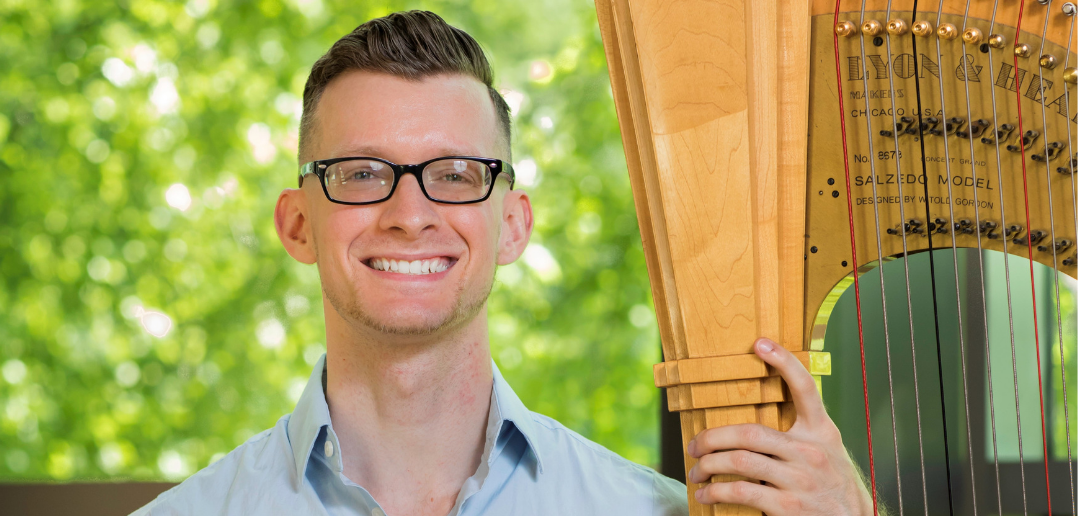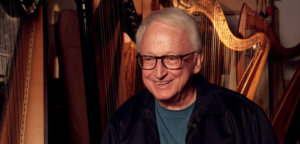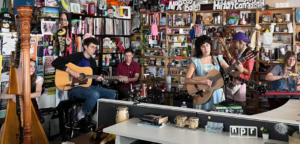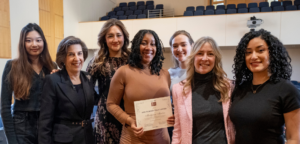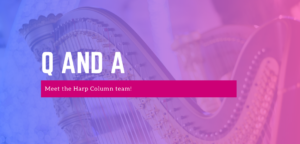We recently came across a YouTube video of harpist Joseph Rebman performing his own concerto with orchestra as part of the Mostly Modern Festival that takes place every June in Saratoga Springs. Titled Hyperion, the concerto encompasses a wide range of techniques and colors. We had a lot of questions about the process of writing your own symphonic work, and reached out to the harpist composer to find out more.
[embedyt] https://www.youtube.com/watch?v=52URuFQ1O1g[/embedyt]
I know Hyperion is the god of light in Greek mythology. Why did you name the piece after him?
I have always been drawn to mythology and fairytales. Some of my favorite classical works include ballet music like Firebird, and narrative pieces like Scheherazade and La Mer. My concerto actually isn’t about Hyperion, but about his three children. The first movement is Helios, god of the sun, followed by Selene, goddess of the moon, ending with Eos, goddess of the dawn. I chose Hyperion as the title to encompass all three movements. Though Hyperion does not follow a specific narrative, I was inspired by the characteristics of the three gods, the celestial objects they represent, and common correlations with the times of day: heat and activity of the day, chill and peace of the night, and resetting the cycle with dawn.
You use a number of extended techniques, including pedal slides, nail effects, and a whole section where the performer has to weave two strips of paper between the strings. What was your intent behind adding so many effects?
The harp has a long history of beautiful music, and a common new music answer to that is the complete opposite. With this concerto I wanted to show the full range of sound and character the harp is capable of, both traditional and modern. I wanted more than just plucking and glissandi, but also not an encyclopedia of every weird thing the harp can do. I chose all my favorite extended techniques that I think are fun to play, easy to produce, and would speak well in the context.

Joseph Rebman performs his concerto, Hyperion, with conductor Ruth Reinhardt at the Mostly Mozart Festival
Though you wrote the piece a few years ago, the work had its orchestral premiere at the Mostly Modern Festival in June. Tell us about the experience of finally hearing the orchestrations.
It was incredible! The computer is a helpful place to start, but nothing compares with hearing the music live. Of course, we made some small changes through the rehearsal process, and I also got feedback from players about better ways to write for their instrument. The idea to write this piece started 10 years ago, so to finally have it come to fruition was exhilarating.
Do you think it’s easier or harder performing as a soloist when it is your own composition?
Easier! When you wrote the music you already have a head start on memorizing, and if something turns out to just not work so well in context, you can change things. Bonus that if I make a mistake, nobody knows!
You’ve written a number of works for various solo instruments and mixed chamber ensembles. As a harpist, how does your approach change when you’re composing for the harp vs. when you’re writing for other instruments?
When writing for the harp I have a high understanding of what the instrument can do and the history of the repertoire. Writing for other instruments requires a significant amount of research to do it well. One example that comes to mind is my piano solo. As a harpist, I know there is a long history of composers writing for the harp as if it as a piano, often leading to impossible chromatics and really awkward passages. I wanted to make sure I didn’t write for the piano as if it was a harp, so I dug into the function of all three pedals and wrote things I knew wouldn’t work well on harp, such as octatonic scales.
Anything else you’d like to add?
I think every harpist should try writing music, no matter how big or small. The act of writing, or even taking a class, helps you understand where contemporary composers are coming from. This experience gives you extra insight into what composers actually want, but might not be communicating well on the page. Helps you get in their head and speak their language, which we always want composers to do for us! If we want to help composers better understand the harp, it is great for harpists to better understand composers and the act of composing.





